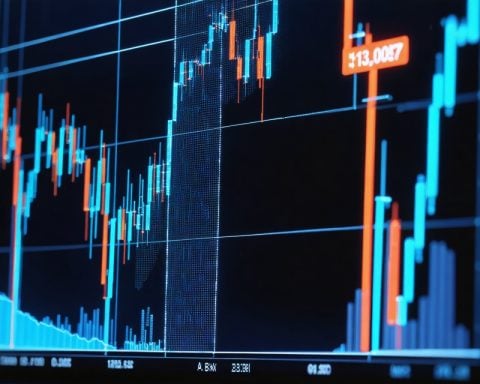As the world moves towards greater technological integration and faces economic uncertainties, the financial sector stands at a pivotal juncture. In 2025, banks and financial organizations grapple with intense competition from fintech innovators and evolving consumer expectations.
Here are the top trends that will shape the financial landscape in 2025:
1. Sophisticated AI Operations: Fintech institutions are streamlining back-office operations by automating tasks like transaction processing and fraud detection. This reduction in human error results in significant cost savings. Advanced AI deployments now facilitate autonomous decision-making and real-time risk assessments, though challenges in data privacy and ethical use remain.
2. Revolutionized Customer Service: The financial sector is transforming client interactions with AI-driven chatbots, providing round-the-clock assistance. These virtual aides not only address complex inquiries but anticipate customer needs, ensuring a seamless and personalized experience.
3. AI-Powered Financial Advice: AI systems proficient in natural language processing offer bespoke financial planning, drawing on detailed behavioral data. These virtual advisors guide customers on savings and investments tailored to their personal goals.
4. Rise of Ethical Finance: Demand grows for ethical financial products with an emphasis on sustainable investing. Financial firms are responding by being transparent about their environmental impact, making them key allies in customers’ sustainability efforts.
5. Central Bank Digital Currencies (CBDCs): As digital currency initiatives gain traction globally, regions are embracing CBDCs to achieve secure and efficient digital transactions, leading the way in financial innovation.
Innovation, regulation, and resilience are the pillars supporting the financial industry’s evolution. As 2025 approaches, the shift isn’t merely technological—it redefines banking, making it more intelligent, sustainable, and customer-centric. The future of finance is being reshaped beyond a digital realm, offering a more personalized human experience.
The Unspoken Impacts of Financial Technology: What You Need to Know
As we delve deeper into the financial world of 2025, many facets remain untapped and unexplored. While the primary focus has been on technological advancements, there are several undercurrents that are equally vital in shaping how technology affects people, communities, and nations.
Unexpected Benefits of AI Transformations
While the emphasis is often placed on the cost-saving and efficiency benefits of AI, there’s a profound social impact that frequently goes unnoticed. AI-driven financial tools are improving accessibility for individuals with disabilities. Voice-activated banking and gesture-based interfaces allow greater independence for those who face challenges with traditional banking methods. Additionally, AI-powered financial platforms can cater to non-English speakers, breaking language barriers that have historically hindered financial inclusion.
Challenges of Data Privacy
The rise of AI and digital finance hasn’t been entirely smooth. Data privacy concerns pose significant challenges, leading to heated debates on how financial institutions handle sensitive information. With more personalized financial services comes the need for extensive data collection, raising questions about user consent. How much data is too much, and where should the line be drawn? Privacy advocates argue that without robust regulatory frameworks, there’s potential for misuse, while financial experts stress on the necessity of data for accurate personalized services.
The Global Perspective on Central Bank Digital Currencies (CBDCs)
As countries continue to explore and implement Central Bank Digital Currencies, a divide is emerging between proponents and skeptics of this financial evolution. Nations have differing reasons for adopting or resisting CBDCs. On one hand, countries with a history of unstable national currencies view CBDCs as a pathway to financial stability and international trust. On the other hand, there’s apprehension regarding the potential marginalization of those without access to digital infrastructure and technology.
Advantages and Downsides of Ethical Finance
While ethical finance gains traction for its promise of aligning investments with personal values, the movement also faces its share of controversies. Advocates highlight its role in promoting global sustainability and corporate transparency. However, critics argue that the profitability of ethical investments compared to traditional avenues is still debatable. Furthermore, the authenticity of these “ethical” products is often questioned due to the lack of standardized guidelines, potentially leading to greenwashing—where companies paint a false sustainable picture to attract eco-conscious investors.
Fintech and Job Displacement
As fintech continues to rise, there’s understandable concern regarding the impact on employment within traditional financial institutions. While AI and automation promise efficiency, they also lead to job displacement. This brings up the question of how economies can strike a balance between embracing technological advancements and ensuring employment opportunities. Reskilling initiatives and educational programs emerge as crucial strategies to adapt to this inevitable transition.
Ask Yourself:
– How can we find a balance between innovation and ethical responsibility in the financial sector?
– What role should governments play in ensuring fair and unbiased access to next-generation financial services?
As we step into this new era of finance, it is essential to remain informed and adaptive. The current landscape offers vast opportunities for improvement in accessibility, sustainability, and personalization in finance, but these must be pursued without losing sight of ethical and equitable governance.
For further insights into financial trends and innovations, explore:
– World Bank
– International Monetary Fund
– World Economic Forum


















